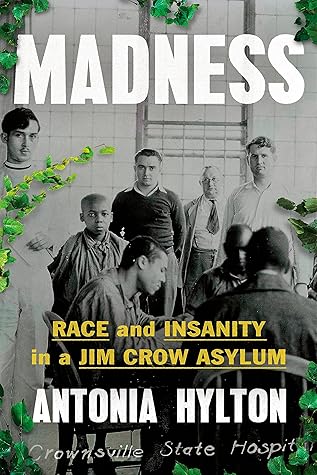More on this book
Community
Kindle Notes & Highlights
Read between
November 12 - November 30, 2024
Oral history is as old as any African and diasporic tradition, and a journalist or historian cannot accurately cover our communities without honoring and practicing it.
At times, critics worry that the memory is unreliable, that spoken accounts are vulnerable to prejudice and influence. What source isn’t?
In these conditions, how do you convince the person you love that they are not in the danger that they perceive? The specter of racial violence had become so effective that it was hovering over my loved one without ever having to come knock at the door.
The possibility that physical abuse, forced labor, and being owned by another human might produce mental trauma was not of scientific concern.
What does it mean to be healthy and well enough to clear the woods, build a road, and construct a hospital, yet also be so sick you require institutionalization? How do we decide who’s irredeemable and who’s capable of recovery?
I was frustrated, but not surprised, by how challenging it was to unearth the medical information or personal stories of patients who had been relegated to the margins of society. Consistently, the records that did exist privileged the perspective of the state or the provider over the patient, who was almost never quoted or given the opportunity to speak for themself.
The function of lynching was so much more than a bypassing of the justice system.
I found myself wondering who these records were really for.
“The hospitals were breeding mental illness faster than they were curing it.”
Crownsville became increasingly isolated, and its isolation took on many forms. At its most literal, it was “cage” seclusion cells and labor that provided neither social contact nor vocational opportunity. At its most structural, it was part of a statewide effort to maintain separation of the races at any cost.
Everything I was going to know about Maynard came from the white police officer who shot him within seconds of finding him.
Was Maynard really plagued by delusions, or was he refusing to keep quiet about the same pain and terrors that so many of our family members try to swallow whole? Were we all actually looking at the same set of facts about our existence and coming to very different conclusions about how to cope?
The leaders of newsrooms make choices about what they cover and how often they cover it, and sometimes they can overemphasize one community’s dysfunction as they downplay another’s.
We have fought hard and long for integration, as I believe we should have, and I know we will win, but I have come to believe that we are integrating into a burning house. —Dr. Martin Luther King Jr., as told to Harry Belafonte
They were human, and the longer they worked there, the more often they found themselves in situations that forced them to ask the same questions over and over again. Is it worth it, doing incremental good in an imperfect system? Can you be a good person and work somewhere where something like this happens?
Even if she had no home or family, that didn’t mean she could not find one.
The long history of the asylum system seemed to be weighing on him. “By the time I entered,” he explained, “chains had been replaced by drugs. So the chains were still there.”
As much as Jordan Neely exhibited signs of illness, Faye believed, so did a group of people who seemed unmoved by a deadly chokehold, or who took out their phones to video someone gasping for air before they continued on their commute. Some part of their connection and humanity must have been severed, too.
the complexity and mystery of mental illness are no excuse to not take action, push for change, or find small ways to help the people around us.
Perhaps that is part of what makes us so unsettled when we encounter others who can’t conceal how sick, lost, and distraught they feel. We are confronted with a choice—when what we really want to do is to shirk responsibility. We are reminded that we are not so healthy and virtuous after all. We’re forced to consider the role we might have played in isolating our neighbors, and how crazy it was that we ever thought we could alienate them, cut funding for the programs that helped them, dispose of the park benches where they might have found rest, and then somehow avoid a public confrontation.
...more


